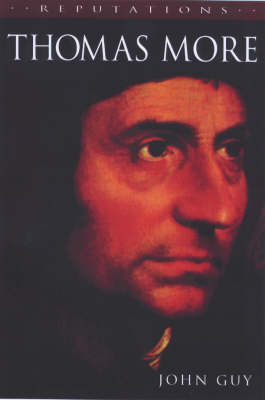Reputations
2 total works
Thomas More is known to us through so many representations: from Holbein's famous portrait to Robert Bolt's "Man For All Seasons". By good chance a quantity of is own letters (including those written in the tower) survive. Among contemporaries, Erasmus wrote about him and his own son-in-law, William Roper, wrote a masterly if not always accurate biography 20 years after More's death. For a Renaissance figure, even a Chancellor of England, there is an unusually rich stratum of source materials. But this has not simplified the business of understanding the "real" Thomas More, for of course he was at the centre of the Reformation, an ideological schism with a remarkably enduring potency. He has also emerged in some commentaries as a Marxist hero. This account seeks to unravel these disparate strands in a search for the historical More. John Guy persuades us to give some of our attention to the life, not just the death, of More, and to ponder the motivation for More's stand against Henry VIII, not just the stand itself.

